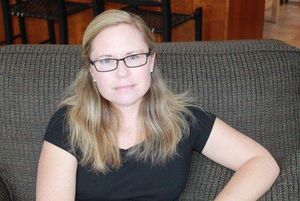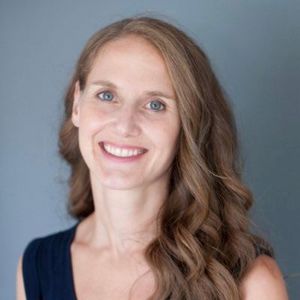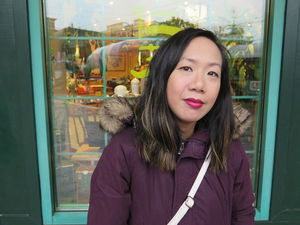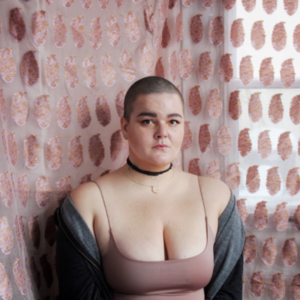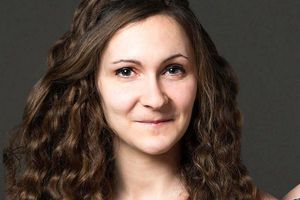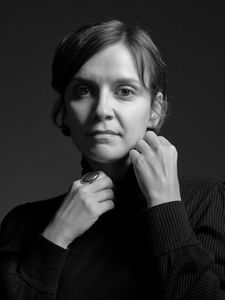Book Therapy: Favourites from my favourites
By Stacey May Fowles
Every year, in the back of my agenda, I keep a simple running list of the books I’ve read. More than anything, it’s a handy way to remember what exactly I consumed and when, but it also offers a useful portrait of exactly what kind of year it was. Was I looking for an escape? Did I feel the desire to self improve? Was I in need of reassurance? Did I just want a damn good read? (The answer is usually yes to all of those questions.)
In making these annual lists I’ve also gotten into the habit of going back and highlighting books that had a real impact on me—not necessarily in aid of creating a “best of” list when the year comes to a close, but instead offering a reminder that certain stories, lines, and thoughts reached out and moved me at a time when I really needed them. In looking back on the portrait of this year’s reading, I wondered about that shortlist of highlighted books and their authors, about what it was that moved them in this, the second year of pandemic life—and so, I asked.
The parameters of my email query weren’t all that strict—I told them that their book pick could be from any year, in any genre, by any writer, just as long as they read it in 2021 and it meant something to them. Here’s what the authors of some of my favourite books of 2021 offered up as theirs:
Michelle Berry, author of Everything Turns Away (Wolsak & Wynn):
"Klara and the Sun by Kazuo Ishiguro. Definitely. And I’ll tell you why—this is a pandemic book. This is a pandemic book that will make you feel many emotions. This is a book for a population who has been social distancing and wearing masks and feeling helpless and zooming all day. A first person narrative about an Artificial Intelligence “friend” named Klara who worships the Sun like a God and takes care of everyone around her and is a calming, thoughtful, curious, brand new life. It’s almost like reading a puppy’s inner thoughts. innocent, naive, questioning, kind, wanting to love and be loved. This novel contemplates faith and human life. Klara and the Sun made me happy (and sad, but what’s a good book without a little of both?) I felt I was looking through new eyes. Something I didn’t realize I needed and craved during this bizarre second year of COVID."
Lindsay Zier-Vogel, author of Letters to Amelia (book*hug):
“I read Amy Spurway’s Crow late in the year, but by the end of the first chapter, I already knew it was one of the best books I’d read all year. In this debut novel, Stacey “Crow” Fortune returns to her home to Cape Breton after being diagnosed with terminal brain cancer, and though the book is predicated on death and dying, it is so very full of life and community and love and family. It is loud and raucous, intimate and hilarious, and I alternately laughed out loud, and sobbed throughout. Bonus: The audiobook, read by Amanda Barker, is masterful.”
Jen Sookfong Lee, author of The Shadow List (Wolsak & Wynn):
“A Dream of a Woman by Casey Plett brims over with humour, yearning, and the universal desire to just have the space to be exactly who we are. In these linked short stories, Casey Plett writes the stories of characters who stumble through the mundane, looking for that sublime moment when they know they are finally, finally home.”
Your CanLit News
Subscribe to Open Book’s newsletter to get local book events, literary content, writing tips, and more in your inbox
Tara McGowan Ross, author of Nothing Will Be Different (Dundurn):
"Susan Burton’s Empty is a brave book. Writing about eating disorders is difficult to do responsibly. It’s an intimate, unwell, and often shameful subject. To have an eating disorder is, for many people, to have a constantly-manifested reminder of some of the most primary struggles of humanity—wrestling with desire, and disappointment, and anger, and the urge to soothe. Maybe it isn’t for other people. Maybe it just is for me.
Writing about eating disorders is also hard because sick people seek out the details to fuel their problems, and writers have a duty to the truth. This has the potential to create a contradiction. Empty is difficult, honest, and complicated. It’s well-written and ugly. I couldn’t put it down.”
Kavita Bedford, author of Friends & Dark Shapes (Europa Editions):
“Whereabouts by Jhumpa Lahiri. This book has many of my favourite features of a contemporary novel; an unnamed female narrator, vignette forms, unspecified yet deeply personalized cities, and meditations on memory. It is an elegant book with a shadowy, haunted feel, as the narrator reflects on her various loves and time living in this city. In many ways the narrator’s is a lonely existence, yet one that spreads out gently and with quiet hope through the city landmarks. The work, she originally wrote in Italian, and translated herself, which is perhaps what gives it a sparse and direct prose that cuts quickly to universal truths.”
Amanda Leduc, author of The Centaur’s Wife (Penguin Random House):
“White Coal City, by Robert Boschmann. Robert Boschmann’s memoir of growing up in a poor coal mining town in British Columbia absolutely knocked me sideways. This book spans decades and generations in its portrayal of a grief that takes root and flowers within a family again and again and again—stifling hope, stifling growth, stifling change. From disability through to the ways that toxic masculinity and class expectations shape a life, Boschmann’s quiet, insistent prose nonetheless draws out so much that is delicate and beautiful about that same complicated history. I loved every shimmering page of it.”
Aimee Wall, author of We, Jane (book*hug):
“This past spring, as I was anticipating the release of Deborah Levy’s Real Estate, I finally read her 2019 novel The Man Who Saw Everything. I love the three volumes of “living autobiography” Levy has published in recent years, Real Estate being the third and final; they feel so full of life, and so full of verve and wit and hot blood. I underline full passages and dog-ear the pages and call friends to ask if they’ve gotten to this part yet, or that one. But her novels are thrilling in a whole other way to me. The Man Who Saw Everything is incredibly formally ambitious and yet still human, still deeply felt. Levy takes on big ideas about personal and political power and the history of 20th century Europe in a time-bending story of one man and his fragmented and fractured and slippery memories—an impossibly expansive narrative that is somehow also just two hundred pages. It left me feeling that something had been cracked wide open and a whole new realm of possibility revealed. It made me want to write.”
Book Therapy is a monthly column about how books have the capacity to help, heal, and change our lives for the better.
The views expressed by Open Book columnists are those held by the authors and do not necessarily reflect the views of Open Book.
Stacey May Fowles is an award-winning journalist, novelist, and essayist whose bylines include The Globe and Mail, The National Post, BuzzFeed, Elle, Toronto Life, The Walrus, Vice, Hazlitt, Quill and Quire, and others. She is the author of the bestselling non-fiction collection Baseball Life Advice (McClelland and Stewart), and the co-editor of the recent anthology Whatever Gets You Through (Greystone).

